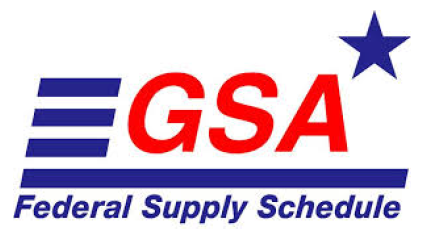
A freeze on government credit cards is leaving small businesses with paused orders, unpaid invoices and no way to process new purchases since the federal agencies don’t have the means to pay for them.
The Department of Government Efficiency, led by billionaire and White House advisor Elon Musk, started cracking down on routine federal expenses as part of its efforts to reduce the size of the federal government.
The use of government purchase cards became a focus for DOGE after it estimated that the government had 4.6 million active federal credit cards, which exceeds the number of civilian employees across the government.
Last week, DOGE announced it had canceled nearly 300,000 credit cards across 16 agencies adding that a lot more card cancellations were coming.
The decision to place a $1 spending limit on government credit cards is bringing research programs to a halt as they rely on flexible, short-term purchasing. It is also affecting agencies’ ability to purchase office supplies, software licenses, renewals, IT equipment and other goods and services.
But the policy change is also paralyzing minority-owned small businesses that rely on predictable cash flow to maintain their operations, pay their stuff and continue meeting contract obligations.
One veteran-owned small business based in Portland, Oregon, said the freeze has been “chaotic” — they can’t charge credit cards for items that have already been delivered, and pending orders are now paused.
Without access to purchase cards, some agencies are resorting to slower, more cumbersome procurement methods like net-30 purchase orders — which requires more internal approvals and paperwork within the agency. That process can take up to four weeks for agencies to set up.
“We’re sort of having this scenario where we’re essentially floating a loan to the government for the money that we need to recoup for the goods that we’ve sent out,” said Sharon Vail, BahFed Corp’s program manager.
The freeze also affects the ability to pay their suppliers on time.
“Saying that the government customer doesn’t have the funding is not a good reason, so we don’t have to pay that cost out as well,” said Ken Paul, the president of BahFed Corp.
BahFed provides IT products, software and support services to agencies across the federal government, including the Defense Department, the Department of Energy, NASA and the Department of Veterans Affairs.
There are also serious concerns regarding compliance with the Prompt Payment Act, which requires agencies to pay contractors within 30 days of receiving an invoice. There is a chance that federal agencies could end up owing interest on delayed payments, which undercuts DOGE’s efforts to cut wasteful spending.
The freeze is also creating plenty of inefficiencies for the agencies.
“They have Adobe software, and they can’t renew their Acrobat [licenses]. Adobe is going to turn them off, and so they won’t be able to create PDFs or do their work,” Vail said.
The Feb. 26 executive order allows exceptions for “critical services,” but Vail said there is no through thread in how agencies are interpreting those exceptions.
“The first week, we did get a few orders, but the customers said, ‘Here’s the order, but there’s no money for it, but don’t cancel it. But please proceed at your risk,’” said Paul.
The federal agencies said the freeze would be in place until April 9, although contractors are skeptical that the date will hold.
“Once the freeze is lifted, we’ll have to go back through the orders to make sure that the pricing is still valid on the orders that are on hold, or letting the customer know that these items are not available anymore at the price that they wanted to them, or that they are not in stock either. And, of course, if those customers are even still working there, that’s the other issue too,” Paul said.
If you would like to contact this reporter about recent changes in the federal government, please email anastasia.obis@federalnewsnetwork.com or reach out on Signal at (301) 830-2747
Copyright
© 2025 Federal News Network. All rights reserved. This website is not intended for users located within the European Economic Area.




